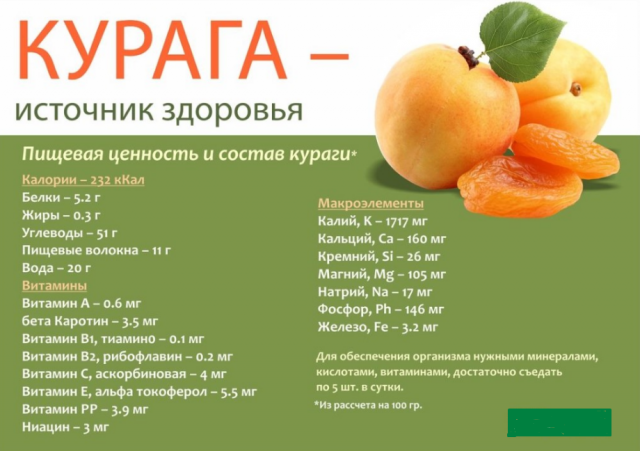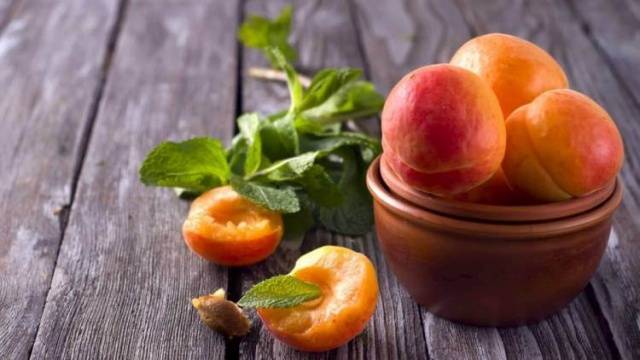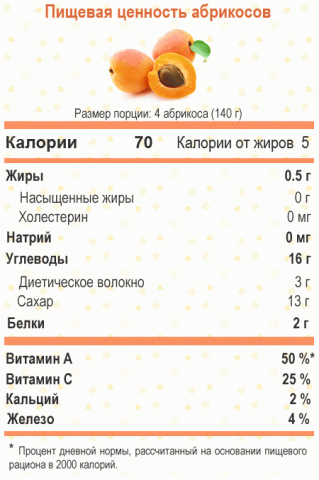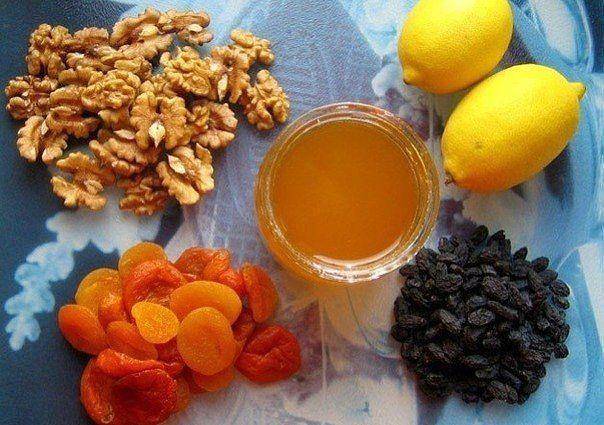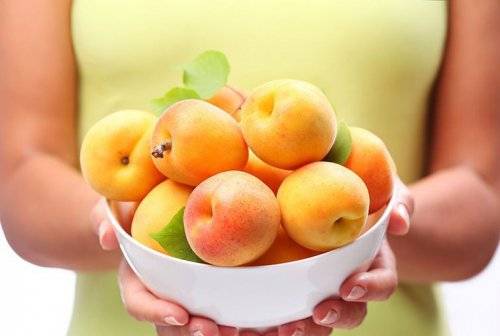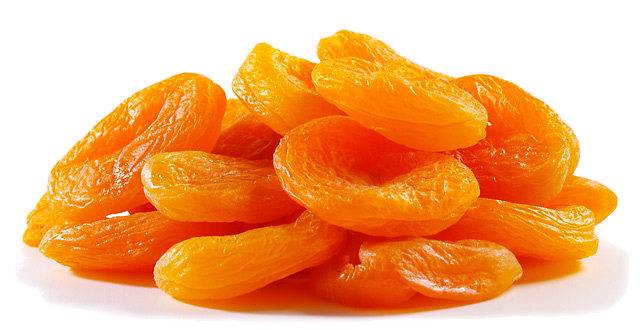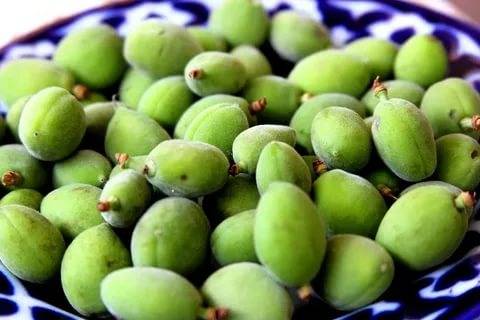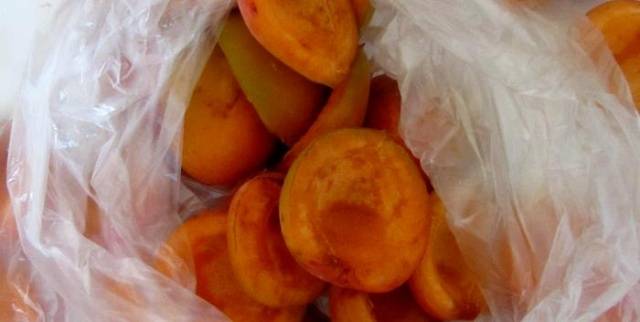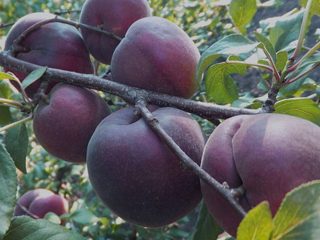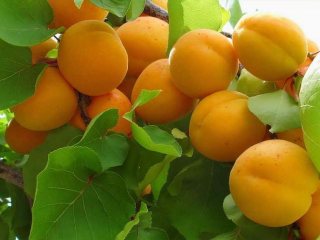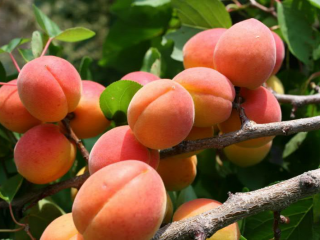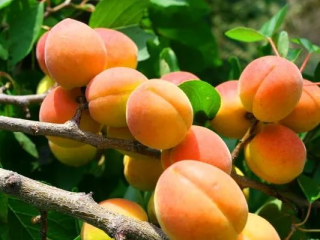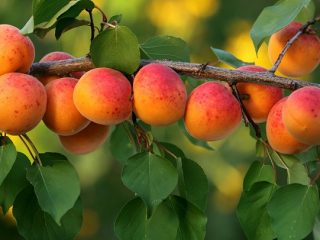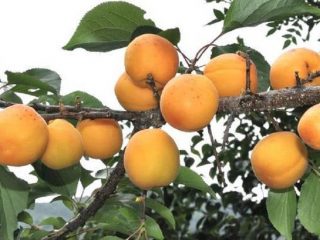Content
- 1 What vitamins and microelements are contained in apricots?
- 2 What are the benefits of apricot for the body?
- 3 Contraindications
- 4 The benefits of apricot for men
- 5 The benefits of apricot for women
- 6 The benefits of apricot for pregnant women
- 7 Is it possible to eat apricots while breastfeeding?
- 8 What are the benefits of apricots for older people?
- 9 The use of apricot in medicine
- 10 Traditional medicine recipes
- 10.1 Dried apricot gruel for atherosclerosis
- 10.2 Cleansing the body with dried apricot gruel
- 10.3 Apricot decoction for intestinal disorders
- 10.4 Apricot tincture for bruises
- 10.5 Apricots for hypertension and constipation
- 10.6 Dried apricot infusion for heart disease
- 10.7 Apricot juice for low gastric acidity
- 11 Apricot diet
- 12 Benefits of dried apricots
- 13 What are the benefits of green apricots?
- 14 Apricot leaves: beneficial properties and contraindications for use
- 15 How to choose and store fruits correctly
- 16 Conclusion
Apricot contains natural vitamins that are beneficial for the human body. However, the fruit is not suitable for every category of people. In large quantities, apricot can cause allergic reactions due to personal intolerance to the product, disruption of the gastrointestinal tract. Still, adults and children love to eat the beautiful orange fruit. Apricot is used in folk medicine, canned, and prepared in desserts and baked goods.
What vitamins and microelements are contained in apricots?
If you list all the vitamins contained in apricot pulp, you will get a large list. The basis is ascorbic acid. Three medium-sized fruits contain up to 10 mg of vitamin C. The daily intake of ascorbic acid for humans is 90 mg. It turns out that in order to replenish the balance you need to eat about 18 fruits daily.
A feature of ascorbic acid is its neutralization during heat treatment, as well as long-term storage of the product. Dried dried apricots have ten times less vitamin C than fresh fruit.
The next highest content in the fruit is vitamin E. Three apricots contain about 0.89 mg of the beneficial substance. The daily norm for humans is 6 mg. The vitamin is especially useful for women during pregnancy, as it helps the fetus develop and stimulates muscles. Compared to ascorbic acid, vitamin E does not evaporate when the fruit is dried, but increases. Dried apricots contain four times more nutrients. 100 g of dried pulp contains 4.33 mg of vitamin E.
The pulp is saturated with vitamins of the entire B group. Thiamine is good for the heart, normalizes digestion, and helps calm down nervous disorders. Riboflavin is the best rescuer against anemia. The vitamin is involved in hematopoiesis.
Apricots contain only 577 mcg of vitamin A.However, this is enough to improve vision and strengthen bone tissue. The vitamin is useful for the pancreas and adrenal glands, and also helps the normal development of children.
Orange fruit contains no less microelements than vitamins. Potassium comes first. The pulp of three fruits contains 259 mg of the substance. In dried apricots this figure is even higher. 100 g of dried fruit contains 1162 mg of potassium. Thanks to this richness, dried apricots are useful for people suffering from heart and kidney disease.
After potassium comes phosphorus. A person's daily requirement is about 1600 mg. Fresh fruits contain 23 mg, and dried fruits contain 55 mg. Phosphorus is needed by humans for metabolism.
Fresh fruit contains 13 mg of calcium, and dried fruit – 55 mg. For humans, the daily requirement is 800 mg. Calcium strengthens bone tissue. The microelement is especially useful for older people and children. Additionally, calcium has a beneficial effect on the nervous system, enhances blood clotting, and is a good anti-allergen.
100 g of fresh fruit contains 10 mg of magnesium. In dried apricots this figure is higher – up to 32 mg. The normal daily intake for humans is 400 mg. The microelement stimulates heart function, normalizes cholesterol, and improves brain function.
In addition to all the listed composition, apricot also contains iron, selenium and other useful microelements. However, their number is scanty.
What are the benefits of apricot for the body?
By the amount of vitamins and microelements one can already judge the benefits of apricot. Fruits increase hemoglobin. For people suffering from anemia, this is the best product.The fruit, in dry and fresh form, is useful for athletes, as microelements stimulate muscle tissue and improve heart function.
Apricot speeds up metabolism. The fruit will bring great benefits to the intestines, relieve constipation, and bring acidity in the stomach to normal. Dried fruits and fresh fruits are a diuretic that helps get rid of swelling. Apricot is used in the treatment of colds of the upper respiratory tract.
No less valuable apricot kernels. Nucleoli are used in folk medicine, cooking, and cosmetology. Apricot kernels even help fight cancer. Dried kernels are an excellent cough remedy and speed up the treatment of bronchitis.
To keep the body in good shape, an adult should eat 5 fresh fruits or 10 pieces of dried dried apricots per day. The daily norm of apricot kernels is 30–40 g.
Contraindications
Apricot is not an allergen, but the fruit in large quantities can be dangerous if you are personally intolerant. People with diseases of the gastrointestinal tract and thyroid gland should limit their intake of fruits. Eating fresh fruits on an empty stomach or drinking large amounts of raw water will lead to severe stomach upset. The fruit can be eaten painlessly after meals in reasonable quantities.
The video talks about the beneficial and harmful properties of apricots:
The benefits of apricot for men
Fresh fruit stimulates muscle development and tissue growth in men. Apricot in fresh and dried form slows down aging and has a beneficial effect on potency. Daily consumption of fruits is the best prevention against heart disease and blood vessels.
The benefits of apricot for women
Apricot helps women maintain natural beauty.Vitamins and microelements improve the condition of the skin and hair. Low calorie content allows a woman to eat fruits for pleasure without worrying about her figure. The fruit strengthens the nervous system, improves vision, and helps lose weight.
The benefits of apricot for pregnant women
Apricot has a laxative effect. During pregnancy, the fruit helps cope with constipation. The natural remedy does not have a negative effect on the child compared to chemical drugs. A pregnant woman can eat up to 300 g of fresh fruits per day.
Is it possible to eat apricots while breastfeeding?
Doctors allow apricots to be included in the daily diet of a nursing mother. However, moderation must be observed. Another important rule is the gradual training of the baby. For the first three months after giving birth, a nursing mother should not eat fresh fruit to avoid colic in the baby. From the third month, the baby’s digestive system becomes developed. A nursing mother first needs to eat half of the fruit. If the child responded normally, the norm is increased the next day.
What are the benefits of apricots for older people?
Apricot is useful for older people due to its calcium content, which helps strengthen bone tissue. Phosphorus improves brain function and develops memory. Magnesium normalizes blood pressure. The fruit replaces chemical laxatives for problems with the gastrointestinal tract.
The use of apricot in medicine
Ancient doctors wrote about the benefits of apricots. The fruits were used for constipation, as well as to get rid of bad odor from the mouth. Indian doctors attribute orange fruits to patients for hypertension.Doctors advise using fresh fruits or squeezing juice from them for treatment. Apricot is considered a good cure for epilepsy. To ease seizures, doctors recommend drinking 500 ml of fresh juice daily. In the treatment of constipation, 100 g of dried fruits or 400 g of fresh fruits are prescribed.
Traditional medicine recipes
Traditional healers consider apricot a source of health; they use it in fresh, dry form, seeds, tree bark and even foliage.
Dried apricot gruel for atherosclerosis
To obtain a paste, 120 g of dried fruits are ground in a meat grinder and mixed with 20 g of liquid honey. The pasty mass is consumed 20 g three times a day. The course of treatment is up to two months.
Cleansing the body with dried apricot gruel
Grind 200 g of dried dried apricots, a similar amount of prunes, add 100 g of ground walnuts. The gruel is mixed with 40 g of liquid honey. The finished mass is consumed 40 g in the morning and evening for thirty days.
Apricot decoction for intestinal disorders
Despite the laxative effect, fresh apricots eliminate intestinal problems. To prepare the decoction yourself, boil 200 g of fruit for forty minutes in 1 liter of water. The filtered liquid is drunk three times a day, 150 ml.
Apricot tincture for bruises
For the miracle potion you need 2 kg of finely chopped fresh apricot pulp. The mass is placed in a jar, 5 g of cloves and 2 g of cinnamon are added. The contents of the container are filled with 1 liter of moonshine or vodka. A month after infusing in a dark place, the product can be applied to bruises.
Apricots for hypertension and constipation
The decoction is prepared from 250 g of dried fruits. Dried apricots are poured into a saucepan with 1 liter of boiling water, covered with a lid and a blanket. After ten hours of infusion, the liquid is filtered through gauze.Drink 1 glass of the decoction three times a day.
Dried apricot infusion for heart disease
The tincture is prepared from 50 g of dried fruits, poured with 250 ml of boiled water. After infusion for four hours, the liquid is filtered through gauze and drunk 120 ml in the morning and evening.
Apricot juice for low gastric acidity
Squeeze the juice from ripe, undamaged fruits. Take 50 ml before meals twice a day.
Apricot diet
Apricot is low in calories, which is ideal for people suffering from obesity. Doctors have developed many diets that allow you to lose weight, improve intestinal function, and prevent kidney disease.
The diet without harm to the body can last up to 5 days. During this period, fresh fruits are consumed in any form: juice, salad, puree. Other high-calorie foods are excluded from the diet during the diet.
The fruits are eaten often, but in small portions. I drink water only before meals or after 1.5 hours. From liquids, you can still take mineral still water or herbal tea, but it is better to brew compote. A gentle diet involves taking it with fresh dried apricots.
During the apricot diet, a maximum of 1.5 kg of fruit is eaten per day. This is no longer possible due to the strain on the intestines. After taking apricot for five days, take a diet break for at least 1 month. Before starting the procedure, be sure to consult a doctor. The apricot diet is prohibited for gastritis, diabetes, and intestinal disease.
Benefits of dried apricots
If you ask yourself what is healthier: dried apricots or apricots, then the dried fruit is inferior only in vitamin C. Its content is 10 times less. Dried fruits contain more other vitamins.Dried apricots are equally useful in culinary dishes and if they are simply eaten without prior processing. Doctors attribute dried fruits to people with cancer, as well as to maintain the functioning of the heart muscle.
What are the benefits of green apricots?
Separately, we need to consider the benefits and harms of green apricots for humans. Unripe fruits contain practically no vitamins and minerals. Doctors do not recommend eating green apricots due to the high likelihood of intestinal poisoning. There is no benefit from such a product. However, if a person eats a couple of green fruits, nothing bad will happen.
Apricot leaves: beneficial properties and contraindications for use
Considering the beneficial properties and contraindications of apricot leaves, we must first say that a decoction of them is an excellent diuretic and also removes toxins well. Fresh crumpled leaves are applied to the site of the bruise, and the pulp is used to wipe the area of the body for sunburn or acne. A decoction of green apricot leaves is good for removing worms from the body. A contraindication for use may be personal intolerance, but before any action you should consult a doctor.
How to choose and store fruits correctly
Only hard fruits picked from the tree are suitable for long-term storage. The temperature in the basement should not exceed +10OC, otherwise the apricots will begin to ripen quickly. The maximum harvested harvest can be stored for three weeks, after which the pulp becomes loose and loses its taste. With constant humidity 95% and air temperature 0OThe harvest can be preserved for up to 30 days.
You can extend the shelf life of the crop freezing apricots or conservation. Compote is a popular winter preparation.Apricot slices are placed in jars and filled with syrup heated to a temperature of 90OWITH.
When making jam, add 1 kg of sugar to 1 kg of fruit, pour in a glass of water, add 1 tsp. wine vinegar and 5 g of pectin. When the mass thickens, put it into jars and roll up the lids.
To make jelly, apricot pieces are poured with water and boiled until juice is obtained. The finished liquid is filtered and boiled to ½ volume. Add 0.5 kg of sugar to 1 liter of the resulting juice. Approximately 3 minutes before removing from heat, add 3 g of pectin and 1 tsp. wine vinegar. The jelly can be canned or eaten when it thickens.
Conclusion
Apricot can rightfully be called a folk healer. In addition to tasty fruits, the culture will cure many ailments with its leaves, seeds, and bark.
